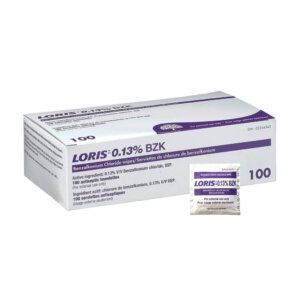
It have become increasingly prevalent in today’s society. While some individuals may experience mild symptoms, others face life-threatening reactions. In this article, we will delve into the intricacies of food allergies, unpacking the science behind the triggers and exploring various strategies for successful management.
Understanding the Biological Mechanisms
When an individual with food allergies consumes a trigger food, their immune system mistakenly identifies specific proteins in the food as harmful invaders. It triggers an immune response, leading to the release of antibodies and the release of histamines, causing various allergic symptoms.
The exact triggers for food allergies can vary widely among individuals. Common allergens include peanuts, tree nuts, shellfish, eggs, milk, and soy. Understanding the specific proteins within these foods that trigger allergic reactions is crucial for diagnosis and management. Recent research has also revealed the role of genetic factors in food allergies, with specific genes being linked to a higher risk of developing allergies.
Effective management of food allergies involves a combination of avoidance and preparedness. Avoiding trigger foods is the primary strategy, and individuals must carefully read food labels and be aware of cross-contamination risks. In cases of accidental exposure, having an emergency action plan, such as carrying epinephrine auto-injectors, is essential. Ongoing research is focused on developing immunotherapies to desensitise allergic individuals to specific foods, but more studies are needed to determine their long-term safety and effectiveness.
Understanding the biological mechanisms behind food allergies is vital for effectively managing this prevalent and potentially life-threatening condition. Ongoing research and advancements in diagnostics and treatment options are crucial for improving the lives of individuals with food allergies.
Navigating Dining
Navigating dining with food allergies can be a challenging task. One important aspect is learning to identify and avoid common trigger foods. It means reading ingredient labels, asking questions about food preparation methods, and being aware of hidden allergens in dishes.
It is crucial for individuals with food allergies to effectively communicate their needs to restaurant staff and those preparing their food. Clear and concise communication about allergies, cross-contamination risks, and the severity of their condition is essential. It can help kitchen staff understand the importance of preventing allergen exposure and taking precautions to avoid cross-contamination.
Individuals with food allergies should always carry their prescribed medication, such as epinephrine auto-injectors, for accidental exposure. Being prepared and cautious can make dining out a safer experience for those with food allergies. By following these strategies, individuals can navigate dining with food allergies more effectively and reduce the risks of allergic reactions.
Emergency Management
Emergency management of allergies is vital to keeping individuals safe when faced with a potentially life-threatening allergic reaction. In an emergency, it is crucial to act quickly and efficiently. The first step in emergency management is recognising the signs and symptoms of an allergic reaction, including hives, difficulty breathing, swelling of the lips or throat, and vomiting. If these symptoms occur, immediate medical attention should be sought.
Individuals should always carry an epinephrine auto-injector to manage a food allergy emergency effectively. This device can quickly administer life-saving medication in the event of an allergic reaction. Ensuring that the auto-injector is still valid and that individuals know how to help it properly is essential. Additionally, emergency action plans should be established and shared with caregivers, schools, and workplaces to ensure everyone is prepared to handle an allergic emergency.
Emergency management of food allergies requires a proactive approach to prevent and respond to allergic reactions. Education and awareness are critical components in preventing emergencies, and individuals should be educated on how to read food labels, avoid cross-contamination, and recognise the signs of an allergic reaction.
Long-Term Strategies for Living
One critical long-term plan is to educate oneself about food allergies, including understanding the triggers and learning to read food labels effectively. By gaining knowledge about the allergens present in various foods and familiarising oneself with hidden sources of allergens, individuals can make informed decisions about what they can safely consume.
Another important long-term strategy is to develop a robust support system. Managing food allergies can be emotionally and physically exhausting, so having a network of family, friends, and healthcare professionals who understand and support the allergy sufferer is crucial. This support system can provide guidance, help with meal planning and preparation, and offer emotional support during challenging times.
Individuals with food allergies should consider creating an emergency action plan. This comprehensive plan should outline steps to take in case of accidental exposure or an allergic reaction, including emergency contact information, a list of medications, and instructions on administering them.







